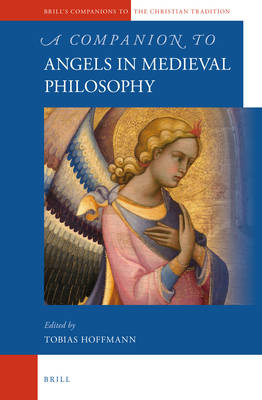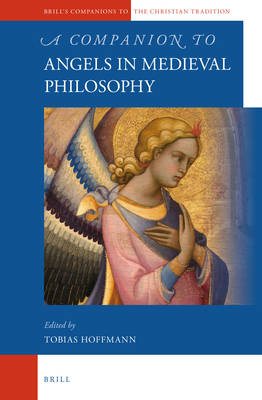
- Afhalen na 1 uur in een winkel met voorraad
- Gratis thuislevering in België vanaf € 30
- Ruim aanbod met 7 miljoen producten
- Afhalen na 1 uur in een winkel met voorraad
- Gratis thuislevering in België vanaf € 30
- Ruim aanbod met 7 miljoen producten
Zoeken
Omschrijving
Humanist prejudice famously made medieval angelology the paradigm of ludicrous speculation with its caricature of "How many angels can dance on the head of a pin?" The truth is quite the opposite: many of medieval philosophy's most original and ingenious contributions actually came to light in discussions of angelology. In fact, angelology provided an ideal context for discussing issues such as the structure of the universe, the metaphysical texture of creatures (e.g. esse-essentia composition and the principle of individuation), and theories of time, knowledge, freedom, and linguistics--issues which, for the most part, are still highly relevant for contemporary philosophy. Because this specifically philosophical interest in angels developed mainly during the course of the thirteenth and early fourteenth century, this volume centers on the period from Bonaventure to Ockham. It also, however, discusses some original positions by earlier thinkers such as Augustine and Anselm of Canterbury. Its nine thorough studies bring to light some neglected but highly fascinating aspects of medieval philosophy, thus filling an important gap in the literature.
Contributors include: Richard Cross, Gregory T. Doolan, H.J.M.J. Goris, Tobias Hoffmann, Peter King, Timothy B. Noone, Giorgio Pini, Bernd Roling, and John F. Wippel.
Contributors include: Richard Cross, Gregory T. Doolan, H.J.M.J. Goris, Tobias Hoffmann, Peter King, Timothy B. Noone, Giorgio Pini, Bernd Roling, and John F. Wippel.
Specificaties
Betrokkenen
- Auteur(s):
- Uitgeverij:
Inhoud
- Aantal bladzijden:
- 344
- Taal:
- Engels
- Reeks:
- Reeksnummer:
- nr. 35
Eigenschappen
- Productcode (EAN):
- 9789004183469
- Verschijningsdatum:
- 3/08/2012
- Uitvoering:
- Hardcover
- Formaat:
- Genaaid
- Afmetingen:
- 163 mm x 239 mm
- Gewicht:
- 657 g

Alleen bij Standaard Boekhandel
+ 696 punten op je klantenkaart van Standaard Boekhandel
Beoordelingen
We publiceren alleen reviews die voldoen aan de voorwaarden voor reviews. Bekijk onze voorwaarden voor reviews.








